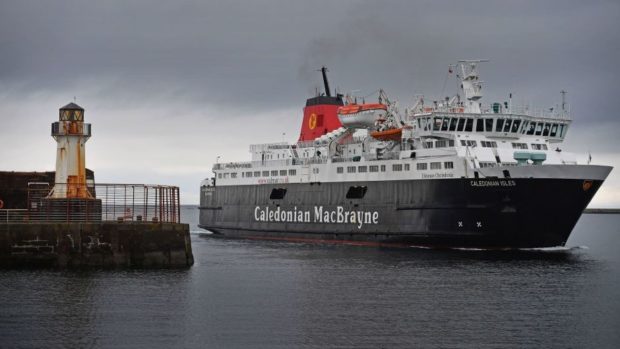Islands Minister Paul Wheelhouse has acknowledged charging for parking at ferry terminals can be viewed as discriminatory and damaging to Scotland’s most isolated communities.
Mr Wheelhouse said he would raise the issue with local authorities when considering a Holyrood petition demanding that public bodies should not impose parking fees at ferry ports.
Appearing at the Scottish Parliament’s Petitions Committee, Mr Wheelhouse said he sympathised with those who argued that parking charges penalised poorer people who needed to travel between islands and the mainland.
It can seem unfair, perhaps, to communities that there’s different parking charge policies being applied in different ferry terminals, which might seem unfair and might seem discriminatory and damaging to islands in some respects.”
Paul Wheelhouse, Islands Minister
He recognised that councils had the ability to take local decisions but said the Scottish Government wanted to provide a framework whereby they could be reviewed.
The committee was dealing with a petition from Iona and Mull Community Councils, which called on Holyrood “to urge the Scottish Government to island-proof transport infrastructure to ensure that public bodies do not charge for parking in car parks at island ferry ports, which are essential lifeline services, and any proposed island parking charges are subject to rigorous impact assessment”.
Ferries a ‘lifeline’ service
Questioned by Petitions Committee convener Johann Lamont, Mr Wheelhouse acknowledged that the overwhelming majority of ferries were a “lifeline” service for passengers.
“It can seem unfair, perhaps, to communities that there’s different parking charge policies being applied in different ferry terminals, which might seem unfair and might seem discriminatory and damaging to islands in some respects,” Mr Wheelhouse admitted.
Mr Wheelhouse said the government was “trying to tread a path” between recognising councils’ autonomy and providing a legislative framework that allowed decisions to be reviewed.
The minister agreed that decisions on parking charges should be subjected to “rigorous” impact assessment.
Ms Lamont suggested that councils were imposing charges because of budgetary pressures and pointed out that most of their funding came from the Scottish Government.
‘Tough choices’ on spending
Mr Wheelhouse acknowledged councils were facing “huge financial pressures”, adding that the Scottish Government was, too, especially during the coronavirus crisis.
He said some councils had told the committee that charges had been introduced as a result of financial reasons.
“We are all having to make tough choices in terms of spending priorities,” Mr Wheelhouse said.
“If any local authority is in such a position, where they feel they have to impose parking charges for financial reasons, I hope they would take into the round the wider impact, perhaps, of that decision on the buoyancy of the economy locally and the impact it may have on those who have modest incomes.”
Ms Lamont asked why the Scottish Government could not agree that it should not be an option for councils charge for parking at ferry terminals because the vessels provided lifeline services.
Mr Wheelhouse said he would discuss the issue with councils while recognising their autonomy and raise it through the Scottish Government’s connectivity plan.

